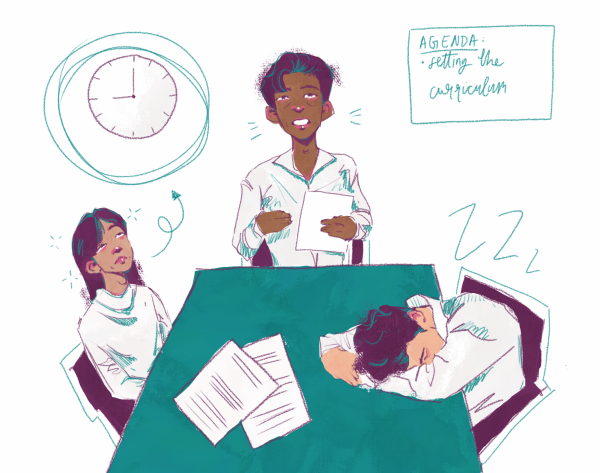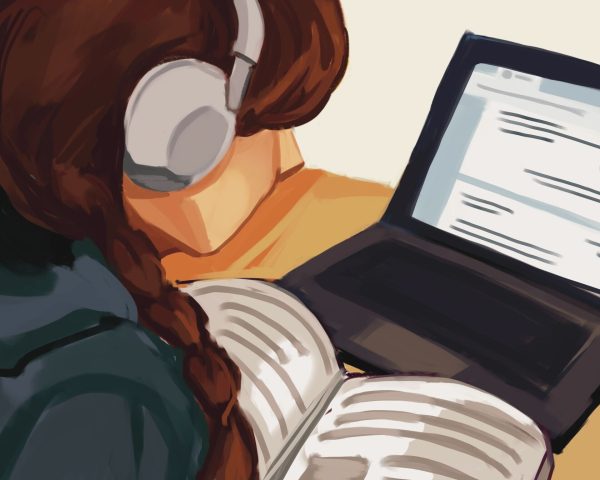Inadequate homework policy needs revision
Palo Alto High School students who toil away at hours of homework each night may be pleasantly surprised to find that the Palo Alto Unified School District (PAUSD) has a homework policy. This excitement may fade, however, when students discover that the homework policy set by PAUSD does not include any guidelines for homework given by accelerated, honors or Advanced Placement (AP) classes.
PAUSD has a very clearly outlined policy on its website, detailing the minutes to be spent on homework from kindergarten all the way to senior year in high school. While this policy is a step in the right direction, there are significant issues with the current policy in place. It outlines the purpose of homework and ensures that students do not receive absurd amounts of work each week, as well as establishing guidelines for how teachers should assign homework and how makeup work should be handled.
The policy does not serve its purpose for many Paly students, due to a note following the guidelines that excludes some classes from being held accountable to the policy.
According to the policy, “students who choose to enroll in Advanced Placement, honors or accelerated courses should expect loads higher than those outlined.” This seemingly small addition changes the entire meaning of the homework policy for many Paly students. More than a third of Paly students took at least one AP test in the 2014-15 school year and many others take or have taken at least one honors or accelerated course.
While the policy mentions that students can refer to the course catalog for outlines of homework expectations in specific classes, this is not an adequate solution. Less than half of the AP course descriptions and very few of the honors lane course descriptions have any guideline for hours of homework per week. There is no suitable way for a student to get a realistic idea of what to expect from these advanced classes if little to no guidance is given in the course catalog.
A simple solution to this issue would be to add a complete breakdown of the average hours of homework assigned in each class per week. As teachers should already have a good idea of the amount of homework assigned in the classes they teach, this addition not be difficult to accomplish. This would not only aid students in choosing classes to take but also ensure that students know how much time should be spent on homework while taking the class.
AP, honors and accelerated classes should be held to the same standards of outlined expectations as all other classes. Advanced classes can easily get difficult to manage with the workloads assigned, especially due to added pressure from looming AP tests and University of California honors weighting requirements. If anything, students in these difficult classes should be more aware of the workloads they are signing up for. There is no reason for any of these advanced classes not to have guidelines for the homework assigned. The homework policy fails to achieve its purpose if so many classes are not accounted for within the guidelines.
It is not reasonable to have higher expectations for the homework load of more challenging classes. However, it is not acceptable for these different expectations not to be outlined. It is necessary for the district to clarify the homework policy so as to include restrictions for the population of Paly students who take one or more advanced classes. Students and teachers alike would benefit from clearly outlined guidelines for work assigned in these classes, as doing so will provide guidelines for the actions of both sides.
Whether it be an amendment to the homework policy itself, or through outlines of homework expectations for every advanced course in the course catalog, both students and teachers need additional guidelines for homework that include all types of advanced courses.
Your donation will support the student journalists of Palo Alto High School's newspaper













